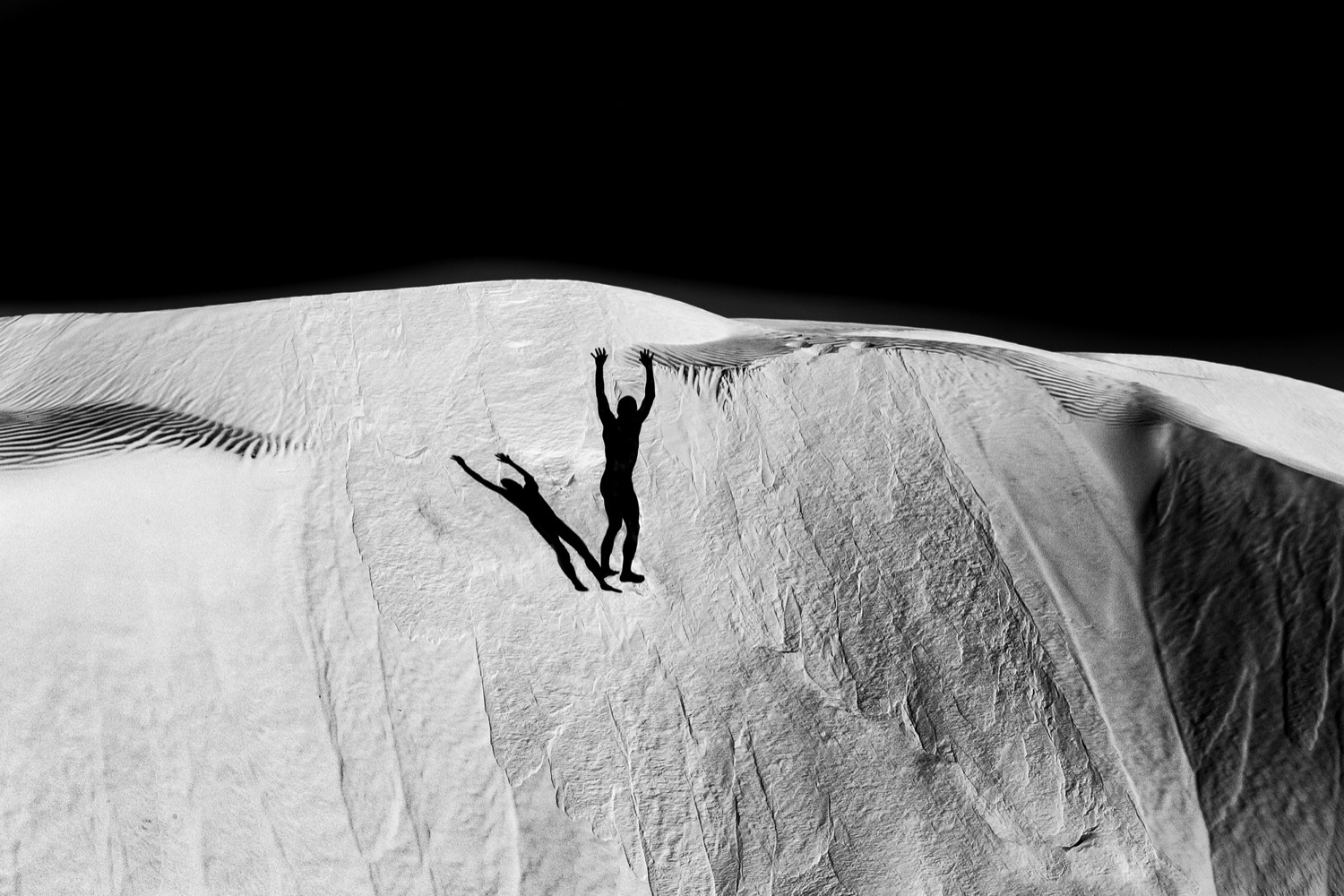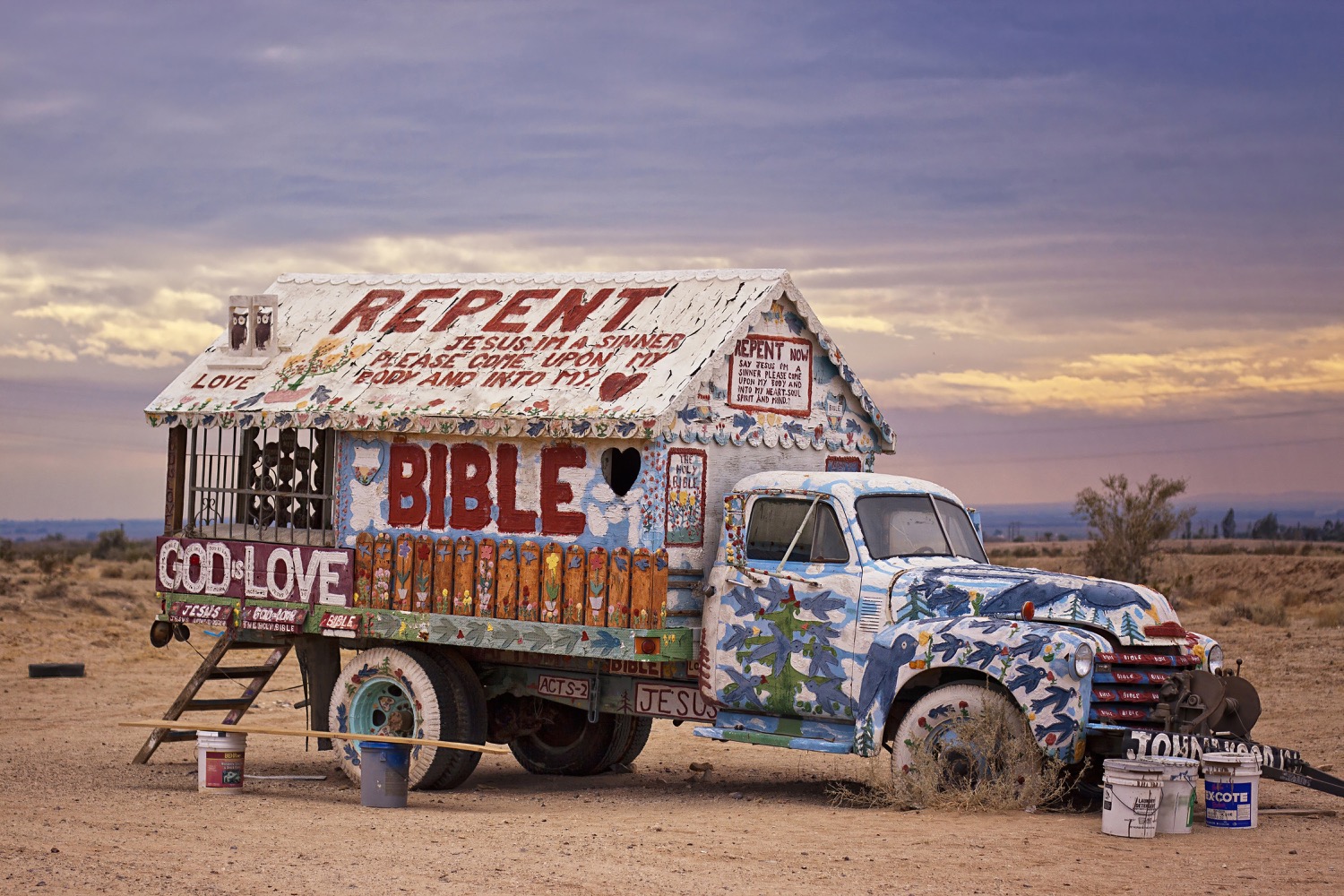
Haufi nyana? I’ve come to take you home
Lebohang Kganye
Lebohang Kganye won the 16th edition of the Foam Paul Huf Award.
Foam

In 2022, Lebohang Kganye won the 16th edition of the Foam Paul Huf Award. Subsequently, Foam is now proud to announce her solo exhibition Haufi nyana? I've come to take you home. Although her work has been featured in many group shows all over the world, this is her first solo exhibition in the Netherlands.
The artistic practice of Lebohang Kganye, who lives and works in Johannesburg, is focused on exploring the personal and collective ‘micro histories’ of her family. It is embedded in the wider history of South Africa from before, during, and in the aftermath of apartheid and colonialism. Her work is largely informed by oral narratives and texts — she collects stories about the impact of apartheid on her family along with plots from South African literature. Words are translated into a ‘play’ or theatrical scripts, and images, sourced from vernacular albums or produced by the artist, are turned into settings, silhouettes, cut-outs, puppets, shadows or even ghosts that fill the imaginative space between words. Kganye is interested in the dynamics between memory and fantasy that photography and storytelling jointly create. The constructed nature of both images and words allows her to bridge gaps in (collective) memory. Effortlessly moving within the sphere of possibilities, Kganye develops methods of decolonizing the medium of photography and South African cultural heritage.
‘Haufi nyana?’ means ‘Too close?’ in Sesotho, one of the eleven official languages of South Africa. The exhibition title refers to the nature of the dialogue between a viewer and the artist: how far can one enter a photographic autobiography on the one hand, and how much can one share a personal story on the other? It also refers to the idea of ‘home’ — which can be far, close, or too close… perhaps even simultaneously. Haufi nyana? I’ve come to take you home showcases four projects from the artist’s oeuvre, spanning the last decade. Each emphasises the complex visual vocabulary of the artist, and the diversity of media and approaches she engages with — from photographic montages (Ke Lefa Laka: Her-Story, 2013) to spatial installation (Mohlokomedi wa Tora, 2018), and from film animation (Shadows of Re-Memory, 2021) to patchwork (Mosebetsi wa Dirithi, 2022).

About the artist
Lebohang Kganye (1990, Johannesburg, SA) received her introduction to photography at the Market Photo Workshop, in Johannesburg, in 2009 and completed the Advanced Photography Programme in 2011. She obtained a diploma in fine arts from the University of Johannesburg in 2014 and is currently doing her masters in fine arts at Witwatersrand University. Apart from the Foam Paul Huf Award 2022, other notable recent awards include the Grand Prix Images Vevey 2021/22, Paulo Cunha e Silva Art Prize 2020 and the Camera Austria Award of 2019.
Over the past eight years, she has exhibited her work extensively within curated group exhibitions and biennales. Most recent examples include Into the Light, South African Pavilion, 59th Venice Biennale, Venice, and the touring group exhibition As We Rise, by Aperture, amongst many other presentations of her work. Kganye’s work forms part of several private and public collections, among which the Smithsonian National Museum of African Art in Washington, the Art Institute of Chicago Collection, the Getty Museum in LA, the Museum of Fine Arts in Houston, the JP Morgan Art Collection in New York, the Carnegie Art Museum in Pennsylvania, and the Walther Collection in Ulm.

About the award
The Foam Paul Huf Award is an internationally acclaimed photography prize aiming to support generational talents and provide a platform for photographers from across the world. This prize has been organised by Foam every year since 2007 and is awarded to young photographers by an international independent professional jury, which for this edition comprised of Alona Pardo (chair, curator at Barbican Art Gallery, London), Oscar Muñoz (visual artist and founder of Lugar a Dudas, Colombia), Oluremi Onabanjo (associate curator at MoMA, New York), Anna-Kaisa Rastenberger (artistic director at Finnish Museum of Photography) and Demet Yıldız Dinçer (photography department manager at Istanbul Modern, Turkey). The Foam Paul Huf Award consists of a cash prize of €20.000,- and a solo exhibition at Foam. Lebohang Kganye sees her name added to an impressive list of 15 former winners.
Haufi nyana? I’ve come to take you home by Lebohang Kganye can be seen from 17 February – 21 May 2023 at Foam.
Foam
Keizersgracht 609
1017 DS Amsterdam
The Netherlands
Tel. + 31 (0)20 5516500
www.foam.org
.svg)
.svg)
.svg)







